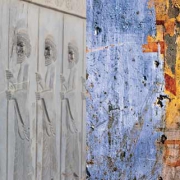Nabucco is dead – but thats what fossils are
About two years ago I was speaking at an event in London. I was asked on my opinion about the infamous Nabucco pipeline and if I believed if it would ever be built. I had just left EconGas, an OMV affiliate so corporate policy still had some form of grip on my mind and on my ability to speak openly. So I said that Nabucco was a project from before gas market liberalization.
Let’s be frank – in theory, the European gas markets liberalized before 2004 but that had not filtered through to European utility company managers minds so they still played the old security of supply game. I also said that considering today’s gas market environment its hard to see how this could ever turn out to be a profitable venture.
Fast forward to today. Nabucco has been officially declared dead. It was about time.
But whats so bad on the general principle of it anyhow. Wouldn’t it make sense to try bringing the incredible gas wealth of the Middle East and the Caspian Sea to well paying European customers? OK, back again to the moment when OMV was in heavy labor, just about to give birth to the Nabucco idea. Europe was a big fat gas pie for the newly liberalized Gas market players. The market grew to infinite proportions (at least in our wet dreams) and it was believed that no matter what volume of gas one threw at it, the market would gobble it up voraciously.
One problem must have been apparent from day one but it has been underestimated all along. Transit countries. You will say that Russian gas comes through many transit countries as well and it just works fine. I would say that something working fine looks different but lets not cut that loaf of cheese now.
Russian pipeline systems (contrary to the virtual Nabucco) were primarily built at a time when there was no transit country problem. A large part of Central Europe and all of Eastern Europe was part of the Soviet zone of influence in Europe making this vast territory one country in essence. Sovjet satellites were not known for throwing tantrums to the masters in Moscow so there simply was no transit.
It all started in earnest at the Austro – Sovjet border near Baumgarten where the Russian gas entered the non-Moscow controlled part of Europe. And at the time when it all began this rarely meant any trouble for the seller or for the buyer. Natural gas contracts were treaties between sovereign nations negotiated by ambassadors and not by businessmen. Buyers were the governments of the receiving countries.
As there was no real money to make (remember, monopolies are no markets) even transit countries played nicely as – remember – Natural Gas was not even something worthwhile. It was still considered some better form of trash that nobody wanted. It was inconceivable at the time that the transit position would hold any value. Anything one got from it was better than nothing.
This is different today when Natural Gas is a valuable commodity and suddenly, being a transit country conferred real leverage. Besides, the collapse of the Soviet Union gave rise to a plethora of newly independent nations – some of them with a grudge for the Russian bear. But then, the pipes were already in the ground. Deal with reality.
But for new builds this is different. Transit countries often are high level highjackers of a project they think is going to give them easy money. The one provides the gas, the other one the market outlet, I sit in between and get money for nothing. Great position, especially if your public finances are under strain.
Nabucco lined up a whole string of them, all cash-strapped. Not a good omen. Let’s just remember the Russain gas crisis. Pipelines and proposals such as North Stream, South Stream, GALSI or MedGaz are all manifestations of the trouble the transit countries gave seller and buyer alike. Qatar turned to LNG when it realized that gas pipeline exports to Europe via Saudi Arabia is going to be a recipe for endless trouble.
But to make things even worse, Gas market liberalization had hit continental Europe. A mega pipeline like Nabucco needs stable cash flow assured over very long periods of time in order to be able to cover CAPEX exposure. Someone must swallow the risk of non-performance. The lender won’t. But that makes the pipeline expensive as when the market is cheap, the transport tariff is going to inflate the price of the Natural Gas out of any proportion.
A monopoly (just like before liberalization) has no problem with any of this as the tariff is socialized over the portfolio of the buyer and the consumer will always carry the cost of the tube. Gas did not need to be competitive. This does not work in a liberalized market anymore as if you buy too expensively, you go down the drain. Your competition is simply going to outflank you with cheaper product. That makes financing such a project a conundrum.
Those having spent their lives in a recently liberalized utility type, ex-monopoly usually have problems with market mechanisms. They cannot understand why customers would want to question their superior logic. Isn’t security of supply worth spending more than you have to for your energy? Consumers don’t care about trivialities such as grand politics or the metastructure of the gas grid. They want gas, and they want it at a price they can afford.
Whats different to, let’s say the car trade? Or paper diapers? Both things close to our lives and hearts. Players in those industries cannot sell their products while pointing out that this is for some bigger, lofty good. They point to the advantages of their product as compared to others plus to price. Anything else gets them into trouble.
Why should that be different for a gas pipeline?
Big infrastructure projects need to sell themselves to everyone in the future. Consumers will have to be convinced why the investment is worth it. Suppliers have to be brought on board and clear rules of engagement have to be established and enforced. Once one knows what beast he deals with its much easier to come on board. Nabucco tried to be all things to everybody. TAP was much more limited and specific with its approach.
But TAP had another ace up its sleeve. They had, with Statoil, a Shah Deniz consortium member on board. Smart move. TAP concentrated on Caspian gas from start on. The message was clear.
Nabucco was conceived as a project for Iranian gas first, then it was Egypt, then Irak for a short time and the Caspian was always lingering in the background as a stopgap if nothing else works. What do you think the Azeris thought when they found that only they remained?
It’s generally not a bad idea to bring the gas producer as a major partner on board. Besides, the cash pillow from the producer alone will make financing easier. That’s what happened with North Stream and it’s not different in LNG.
Nabucco was a relic from the ancient past and relics should be put into a museum collection, not into real life. Liberalisation made Nabucco a born fossil. Time to put it on display as a failed experiment.













Leave a Reply
Want to join the discussion?Feel free to contribute!